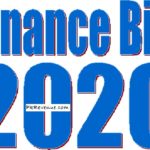ISLAMABAD: All registered taxpayers are required to update their profile by providing details of bank accounts otherwise they will be excluded from Active Taxpayers List (ATL).
The Finance Bill, 2020 has proposed amendment to insert Section 114A to the Income Tax Ordinance, 2001 to make the mandatory for all taxpayers to update their profile.
According to budget commentary issued by PwC A. F. Ferguson Chartered Accountants, all existing registered taxpayers as well as those who will obtain registration by September 30, 2020 will be required to file and update their tax profile by December 31, 2020 whereas other taxpayers will be required to file and update their profiles within 90 days of registration.
Furthermore, with regard to any changes in such profile, the updating is required to be made within 90 days of such change.
Failure to file and update tax profiles in the above manner and within the prescribed dates could result in a taxpayer’s exclusion from active taxpayers list. However, such persons can be included back in active taxpayers list by filing the requisite information and paying the prescribed amount of surcharges.
Following is the proposed new Section 114A to Income Tax Ordinance, 2001:
“114A. Taxpayer’s profile.— (1) Subject to this Ordinance, the following persons shall furnish a profile, namely:—
(a) every person applying for registration under section 181;
(b) every person deriving income chargeable to tax under the head, “income from business”;
(c) every person whose income is subject to final taxation;
(d) any non-profit organization as defined in clause (36) of section 2;
(e) any trust or welfare institution; or
(f) any other person prescribed by the Board.
(2) A taxpayer’s profile—
(a) shall be in the prescribed form and shall be accompanied by such annexures, statements or documents as may be prescribed;
(b) shall fully state, in the specified form and manner, the relevant particulars of—
(i) bank accounts;
(ii) utility connections;
(iii) business premises including all manufacturing, storage or retail outlets operated or leased by the taxpayer;
(iv) types of businesses; and
(v) such other information as may be prescribed;
(c) shall be signed by the person being an individual, or the person’s representative where section 172 applies; and
(d) shall be filed electronically on the web as prescribed by the Board.
(3) A taxpayer’s profile shall be furnished,—
(a) on or before the 31st day of December, 2020 in case of a person registered under section 181 before the 30th day of September, 2020; and
(b) within ninety days registration in case of a person not registered under section 181 before the 30th day of September, 2020.
(4) A taxpayer’s profile shall be updated within ninety days of change in any of the relevant particulars of information as mentioned in clause (b) of sub-section (2).”




